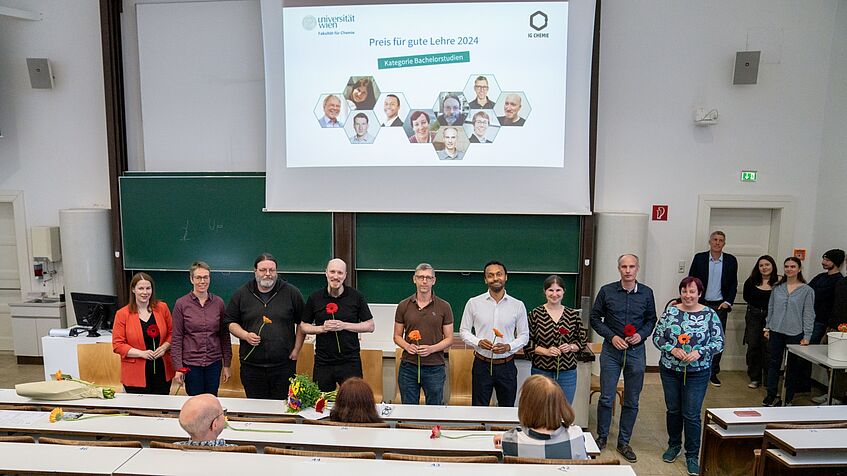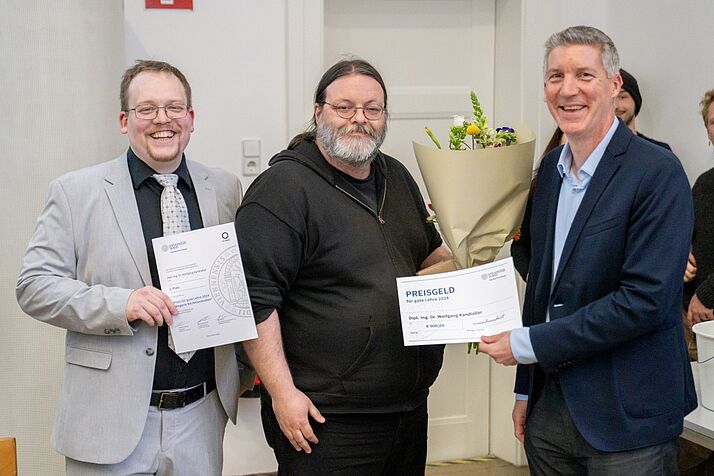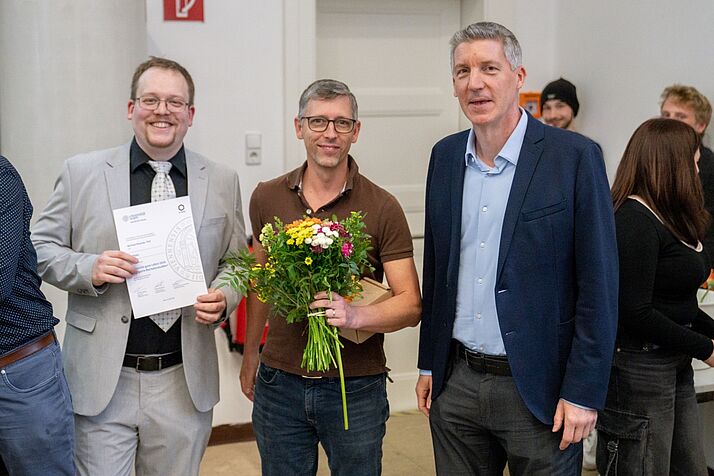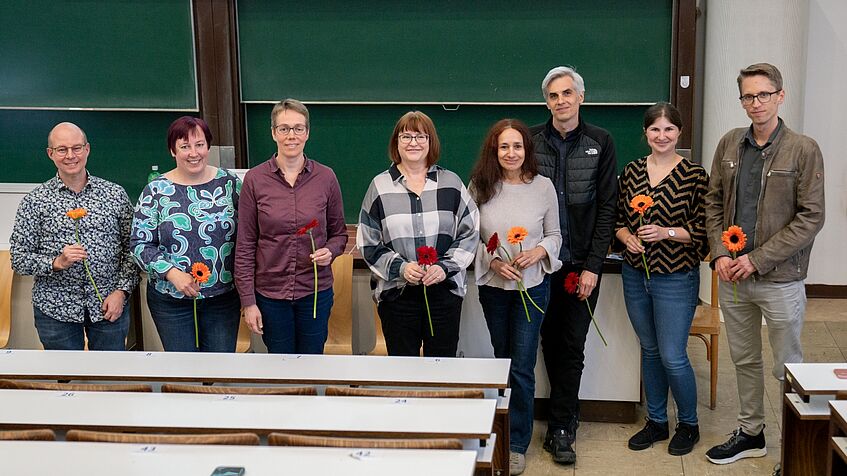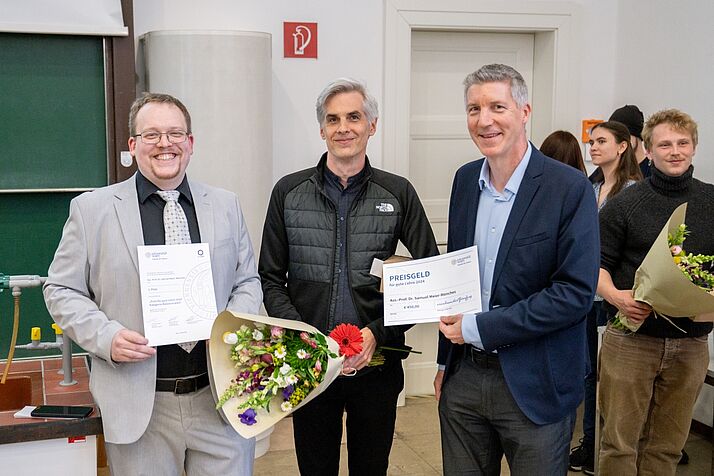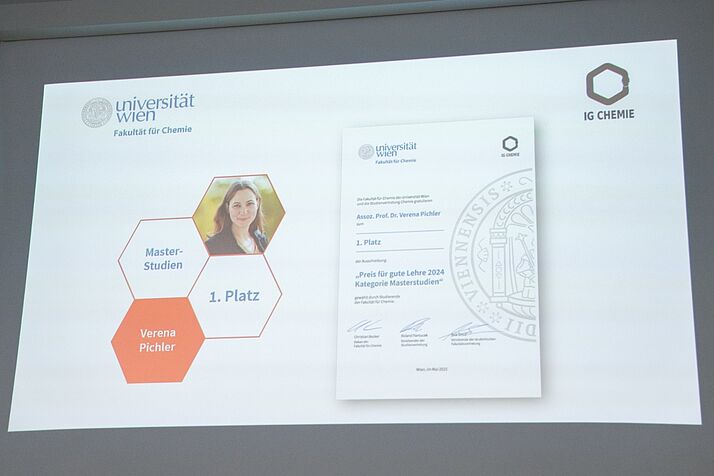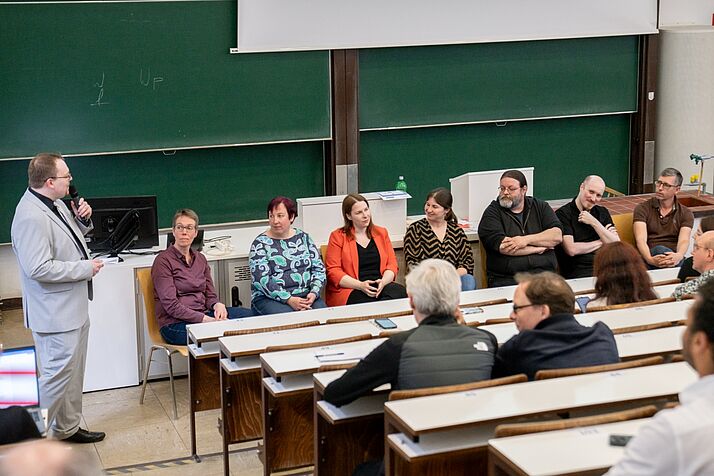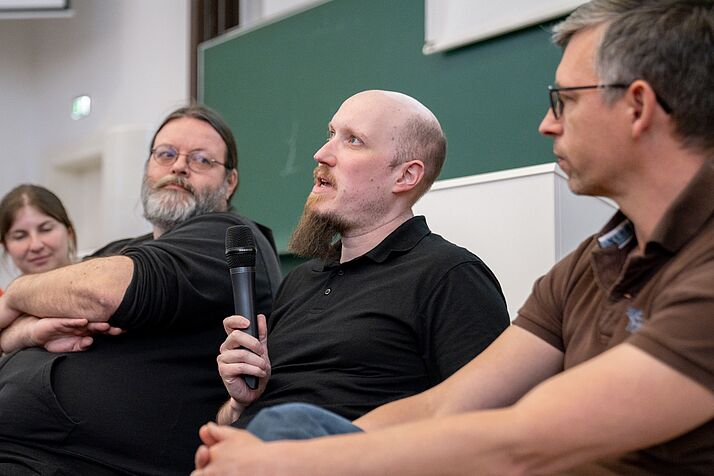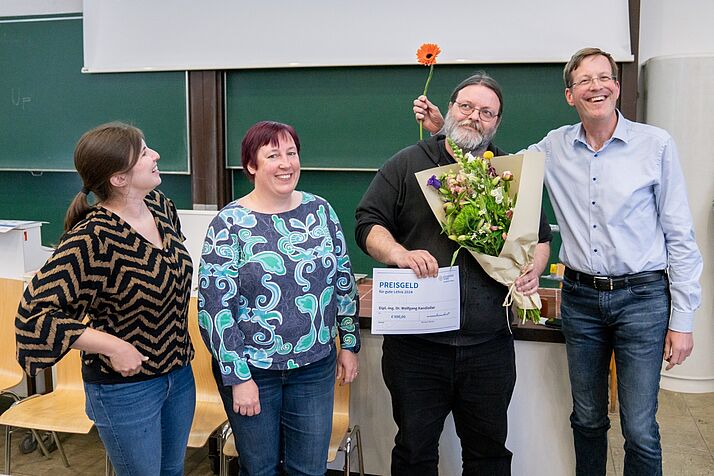Prize for Good Teaching 2024
Success for the Institute of Inorganic Chemistry at the 2024 Student Award.
Since 2020, the student representatives of the Faculty of Chemistry have organised an annual award to honour excellence in teaching. In the first round, students nominate up to three lecturers. The ten most frequently nominated are then put to a vote, and the winners are selected in a second round. On 12 May, the 2024 award recipients were announced—and the Institute of Inorganic Chemistry was particularly well represented.
In the Bachelor category, the first prize went to Wolfgang Kandioller, who graduated from the Institute in 2009 and has been a Senior Scientist since 2012. His award exemplifies a point made by Dean Christian Becker in his opening speech: “It is not always the lecturers of the easiest courses who win prizes.” Wolfgang teaches several courses in the Bachelor curriculum, where students often face a challenging transition from school to university. His favourite course is Chemical Calculation, which taken at the beginning of the programme. “It is fascinating to observe their development as they adapt to university,” says Wolfgang. “We don’t like to fail students,” he emphasises. “This is a common misconception. I would much rather give a good mark than a bad one.”
Runner-up is Michael Malarek, who joined the Institute in 2013 as a Senior Scientist and Senior Lecturer. He is well known to all students from the introductory lecture Introduction to Chemistry. “Teaching is most enjoyable when I can incorporate personal experiences or conduct experiments in the lecture hall,” he says. “This shows that theory is not something dry and abstract, but can be applied in practice in ways that will be important for students during their studies.” Students seem to agree: Norbert Kandler, the technical assistant who supports the experiments, received the Bachelor teaching award in 2023.
“Teachers should value feedback from students,” stresses Wolfgang Kandioller. “Only through this feedback can we improve and grow.” Michael Malarek confirms: “You should never be fully satisfied with what you have achieved—and above all, pass on your enthusiasm for the subject to your students.”
In the Master’s category, first place was awarded twice—and both recipients are alumni of the Institute, having graduated in 2013 from Bernhard Keppler’s group.
Samuel Meier-Menches currently holds a tenure-track position in Translational Precision Analytics in Individualized Medicine at the Faculty of Chemistry and is affiliated with the Institutes of Inorganic and Analytical Chemistry, as well as the Joint Metabolome Facility. About his course Receptor-Ligand Interactions, he explains: “My teaching essentially revolves around learning to understand the complex system of living cells from a chemical perspective. A human being is made up of about 30 trillion cells, and yet the whole system is very robust – I find this highly impressive. Biological processes and functions are enabled by a multitude of ligand-receptor interactions, which are also targeted pharmacologically for the treatment of disease.”
Verena Pichler, who received the second award, is Associate Professor at the Faculty of Life Sciences, Department of Pharmaceutical Sciences. She co-teaches a medicinal radiochemistry lecture with Thomas Mindt and Wolfgang Wadsak, and her Radiopharmacy lecture is also very popular among students. “In a world of constant change, I believe that an open dialogue with our students is key to developing new ideas and staying focused on the issues that will shape our future,” she states. “I am all the more delighted that this award shows that my commitment is recognised and appreciated by the students.”
Christian Kowol, Head of the Institute of Inorganic Chemistry, congratulates his colleagues: “These prizes are a well-deserved recognition of their exceptional dedication and outstanding teaching. As we all know, we can only have excellent students if we provide excellent teaching.

